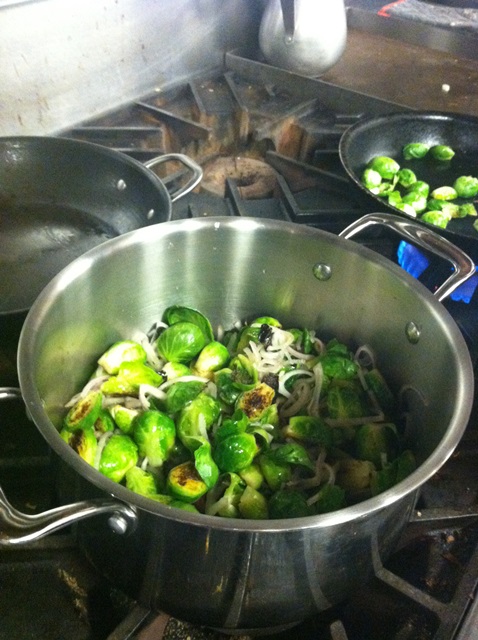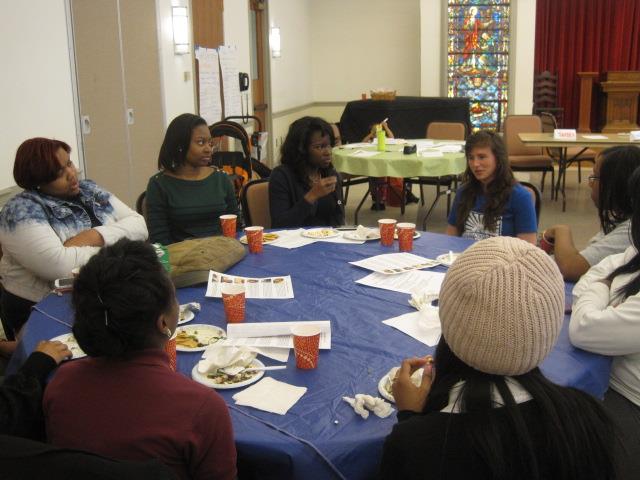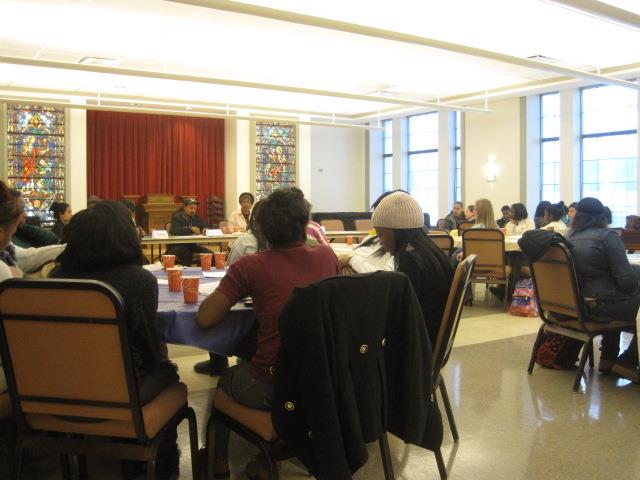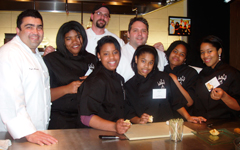Brainfood Gives Thanks for Farmers
Written by: Maeve Rafferty, Program Coordinator
I can eat strawberries any month of the year.
I can always request guacamole on the side of my Chipotle burrito (despite an avocados inability to grow in The District).
 I can sift through cooking blogs, magazines and books to make that recipe I love for brussels sprouts hoping to make my students fall in love with them too.
I can sift through cooking blogs, magazines and books to make that recipe I love for brussels sprouts hoping to make my students fall in love with them too.
All I have to do is walk to Safeway. It’s all quite simple really.
So often I forget to think how truly remarkable that is.
I am thankful for the moments when I am forced to see the big picture. When I am forced to stop, think & feel for a moment about the people who play a significant role in getting those very ingredients to my plate.
Because these people’s lives are not so simple, these people wrestle with nature’s extremes to plow, plant, & harvest all my favorite vegetables.
These people may dedicate their life to supplying food for others and yet might not be able to afford any of that food. Seems crazy, right? Our students were shocked too – it was the first of many surprises and learning moments in our first food justice panel this spring.
Brainfood was lucky to have four incredibly passionate individuals share their stories on farming, cultural preservation through food, and activism at our Farmworkers in the Food System Panel last week.
Students were engaged from the very start as they wrote down questions and topics they hoped would be answered before panelists began, including:
“How is the fresh food picked?”
“Has there been any attempt to help food deserts?”
“How do farmers feel when they kill the animals?”
Our students sure know how to set the bar high and luckily each one of our panelists was up to the challenge. What I loved most was the diversity of panelists, how each person had varying backgrounds, experiences, and goals yet each fought for justice, in their own, personal way.
Take Tambra Raye Stevenson, founder of NativSol Kitchen, who through her love of authentic African cuisine developed recipe adaptations to make dishes healthier without sacrificing tradition and culture.
Christian Melendez, Edmonston Urban Farm Manager, coordinates ECO City Farms' production and sales of produce. Students were excited to ask him specific questions about beekeeping, growing vegetables and caring for chickens all in the same space!
Renee Brooks Catacalos, Board Chair of ECO City Farms, explained that while we need farmers we also need people supporting them. Since 2010, she has focused on strategic planning and project implementation for food and farming organizations.

Yeah, it sure does.
Currently, Cassidy represents a local network of allies organizing in partnership with the Coalition of Immokalee Workers through DC Fair Food.
You couldn’t help but leave the panel and want to take a stand, get your own hands in the dirt or simply thank the kind hands that plucked every sun gold tomato off a vine or yanked each carrot out of the ground.
So farmers, if you’re reading this – thanks. I hope you always know that we think of you often and appreciate all that you do!








Comments
Post new comment